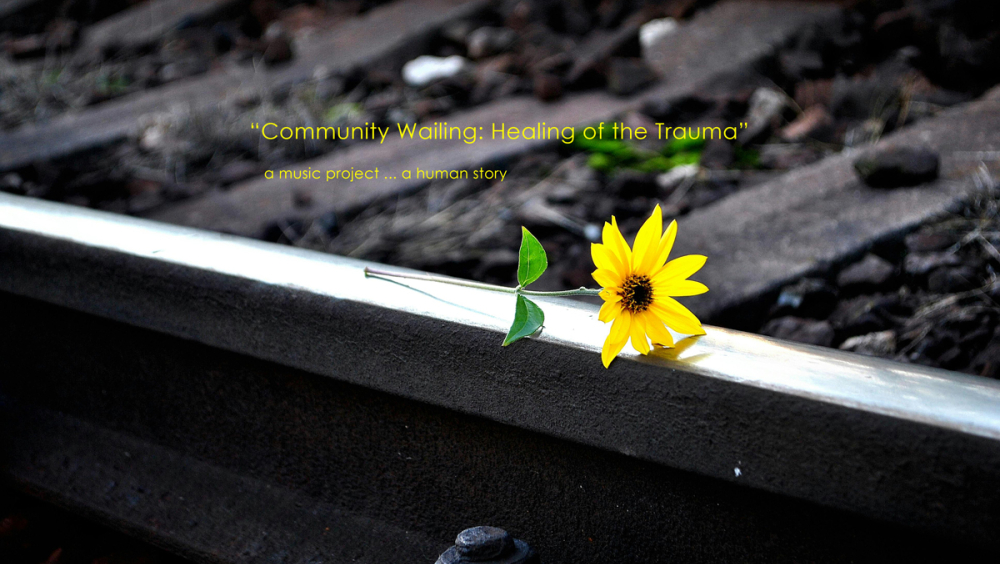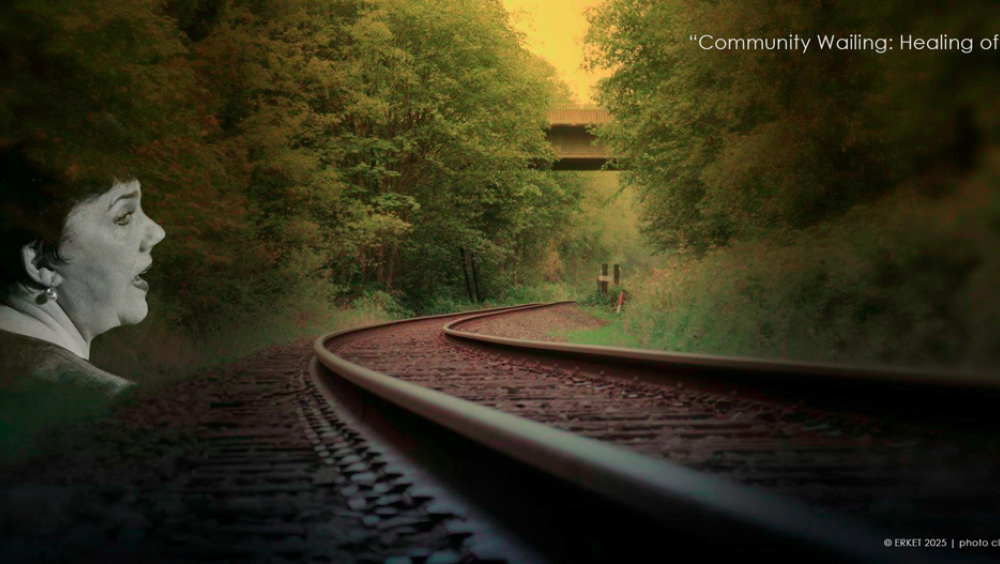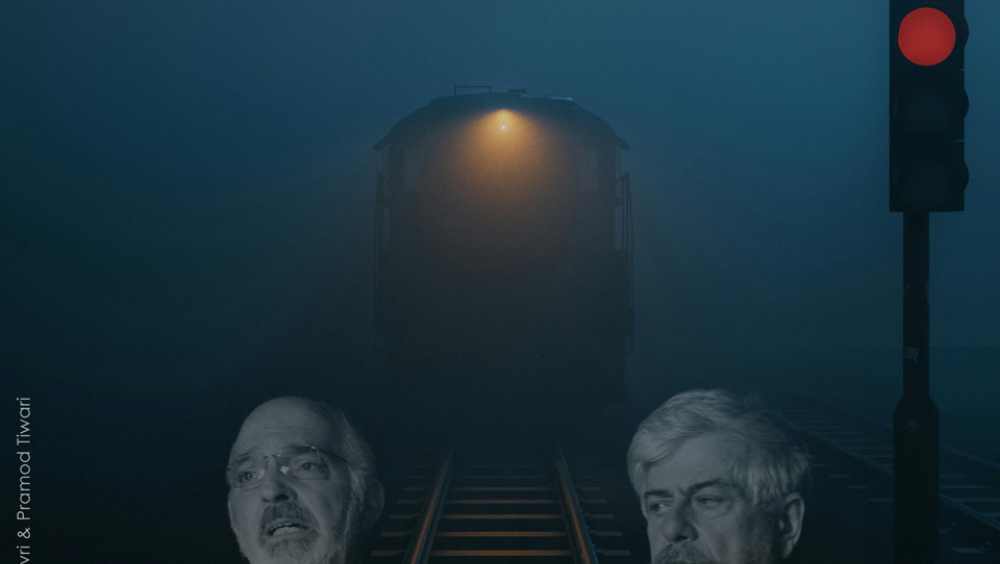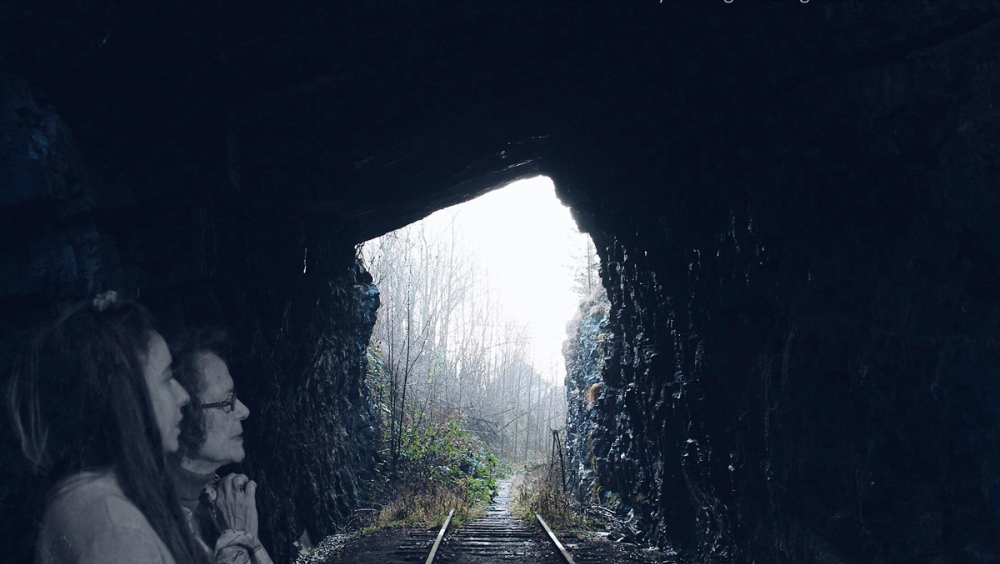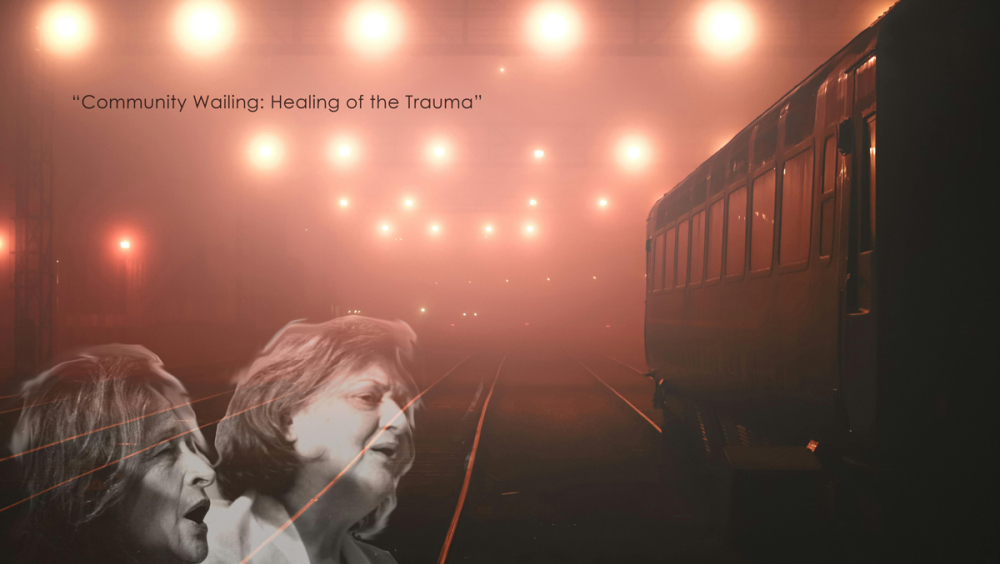Community Wailing: Healing of the Trauma
Tempi, railway accident, 28.02.2023. Traditional wailing practices and their modern transformations.
Evangelismos, Tempi Valley, Larissa, Greece, 11:18 p.m., February 28th, 2023, a tragic train collision lead 57 people (passengers and staff) to death. What can unite us in such a big national mourning? What can soothe our collective drama regarding the violent and unfair loss of 57 people? How can we express our unspeakable pain for the relatives and friends we lost? How can our voice be heard, asking for justice for the unfair loss of 57 of our fellow citizens and citizens of a European country in the 21st century?
Our story began with the tragic incident at Tempi, which killed numerous people.
- Who are we? We are simple people, citizens with empathy who share the unspeakable mourning of the families who lost children, siblings, parents, friends, and colleagues.
- What unites us? Our love for singing and the various ways of its cultural expression.
- How do we participate in the Tempi Tragedy? With our wailing song. With the communal singing expression of our pain, sympathizing with our fellow human beings.
- What do we express? Our solidarity in the pain of those left behind and fighting for the causes of the destruction to be found. Our agony that state negligence and omissions of such a high degree never happen again.
- What do we hope for? For the grieving families to feel that we are standing by them. To convey the message that our wailing is a voice of remembrance for our unfairly lost fellow citizens.
- What do we envision? To learn to express our pain again by singing with extroversion. Not to hesitate to articulate the injustice against us in singing, claiming our rights as European citizens.
Because as we say in Greece: “a shared joy is a double joy; a shared grief is half a grief”.
In all the traditions of European countries, wailing, the “lament” for our loved ones who passed away naturally or violently had a dominant meaning. In the past, wailing, both in the urban area and the communities of the countryside, had a social dimension and expression. It functioned as a practice of expression of the pain and the decongestion of mourning. Since mid-20th century, in modern multicultural cities in Greece, as well as more widely in Europe, the conditions were not favourable for the development of a collective expression of wailing. Many people characterised wailing as a practice: outdated, primitive, barbaric, uncivilised, and quaint. Societies gradually began to express their grief silently, internally, by individually bearing the personal cross of their pain. Thus, grief started being integrated in the human psychic apparatus, becoming enclosed, without easily finding a channel of emotional expression anymore.
The Tempi railway accident was the tragic starting point for us. Our heavy national grief created the need to stand by those in mourning, to co-exist with our fellow citizens, whom even though we do not know, we mourn all together for the great national harm that fell upon us as a European country, and, finally, to contribute to the battle to find the causes, so that any respective tragic event can be avoided in the future.
We are a small urban singing community. We have taken tunes and melodies from our places of origin, as well as from every cultural corner of our country, which inspire us and touch us emotionally. On these tunes and melodies we expressed in verse our pain, our grief, our agony, and, sometimes, our frustration. Always politely, and always with an afterword that only hopes for good. Moreover, this is customary in the anonymous Greek folk poetry of our folk songs. The result? Sixteen (16) wailing songs in the Greek language.
At first, we make no bones about this, we were afraid that all this effort would psychologically bring us down. However, we were very much surprised. Every wailing song represented both a different view of the tragic accident and a special window of hope for the future. Instead of being emotionally brought down as a community, we started to draw strength from each other and courage to share this energy of ours also across communities.
We decided not to stop at our 16 wailing songs and the musical rehearsals among us. On the anniversary of remembrance of the second year after the accident (28.02.2025) we recorded one of our songs as a minimum contribution to those in mourning. And we keep going. Our goal is to prepare the rest of our wailing songs, creating them audiovisually with the symbolic “place” of the tragedy as an axis, but also to present them in natural places, which contribute to the preservation of the memory of our 57 fellow citizens. At the same time, we are planning to carry out a research project on the Tempi accident, aiming to collect, file, document and post online at https://tempi2023.erket.org every wailing (singing, visual, cinematic etc.) expression of our fellow citizens, which was carried out both at national and European level.
Community Wailing now unites and empowers our expression again. Its form and practice may have changed, adapting and serving the modern conditions and needs of our societies, but its essence was and remains unchanged, since it functions in a liberating way for its practitioners. May the restart of an old, but tested during the centuries, wailing practice constitute a useful triggering event to all those who need to exercise it again.
Communal wailing is one of the most important expressions of the European cultural heritage. It differs from place to place, from area to area, and from occasion to occasion. None of us wants this very difficult moment to come along to celebrate it. We wish that the fatal train derailment that cost the lives of 80 people in Santiago De Compostela in Galicia, Spain, on July 24th, 2013, had not happened. We wish that the canopy of the rail station in Novi Sad, Serbia, had not collapsed on November 1st, 2024, leading to the death of 15 Serbian citizens.
Our story aims to highlight at a European level the benefit of Communal Wailing. Combined with other collective practices, the wailing expression empowers us and gives us the ability to express our pain based on our cultural identity. And, finally, through our different wailing expressions in Europe, we ascertain how similar our values are for man and his communities.
